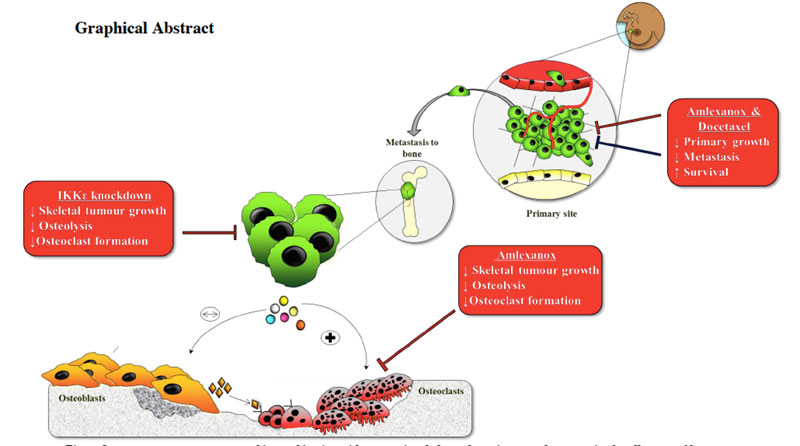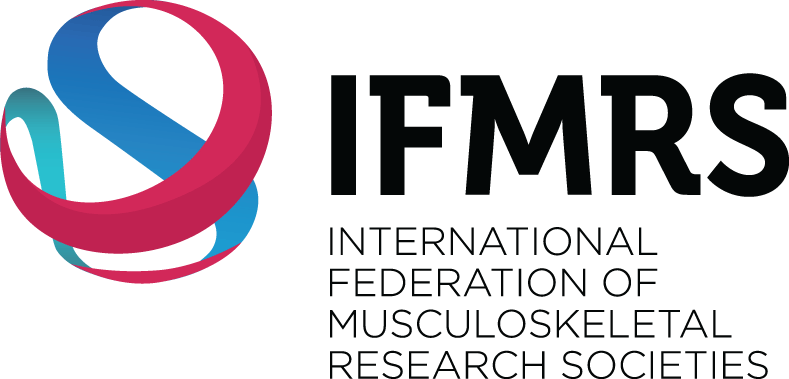THESIS REPORT
The role of IKKε in the initiation and progression of breast cancer bone metastasis
Ryan T Bishop
May 2019
Breast cancer is the most common cancer in the UK with the second highest cancer mortality rate for women. Primary tumours can be successfully treated locally through surgery and adjuvant chemotherapy or hormone therapy. However, it is the recurrence of, often chemoresistant, metastatic tumours at distant sites in the body that are the leading cause of breast cancer mortality. Breast cancers preferentially metastasise to bone. Once in the skeleton, breast cancer cells produce factors that influence the cells of the bone including osteoclasts and osteoblasts inducing osteolytic lesions. Due to the high mortality rate observed in metastatic breast cancer, there is a real need to identify the molecular mechanisms through which tumour cells escape the primary tumour and to establish novel drug targets for the prevention and treatment of metastatic breast cancer. IκB kinase subunit epsilon (IKKε), a key component of NFκB and IRF signalling, has been shown to act as a breast cancer oncogene However, its role in the development and progression of breast cancer osteolytic metastasis has yet to be elucidated. Here, I have shown breast cancer specific knockdown in triple negative human MDA-MB-231-BT cells reduced skeletal tumour growth and subsequent osteolytic bone damage, similarly the IKKε/TBK-1 inhibitor, Amlexanox reduced tumour growth and osteolysis in the 4T1 mouse model of breast cancer. I have demonstrated through functional and mechanistic studies that IKKε/TBK-1contribute to the ability of osteotropic MDA-MB-231 cells to proliferate, move and enhance osteoclast formation through the activation of the IRF3 and NFκB signalling pathways. Furthermore, combined treatment of Amlexanox and Docetaxel in the neo-adjuvant setting in mice reduced primary breast tumour growth of syngeneic breast cancer cells and inhibited metastasis and prolonged metastasis-free survival. Thus IKKε/TBK-1 inhibition shows great promise for the treatment of primary and skeletal tumour burden in advanced breast cancer.
Full text of Dr R. T. Bishop’s thesis is available from HERE

Ryan T Bishop
PhD Student, Department of Human Metabolism University of Sheffield, England, UK


